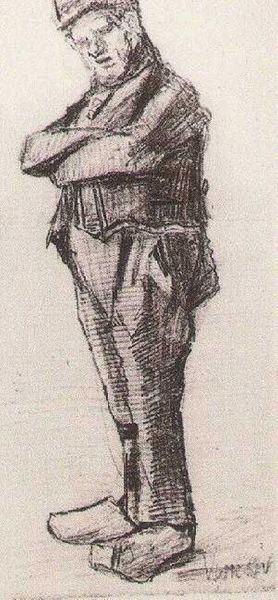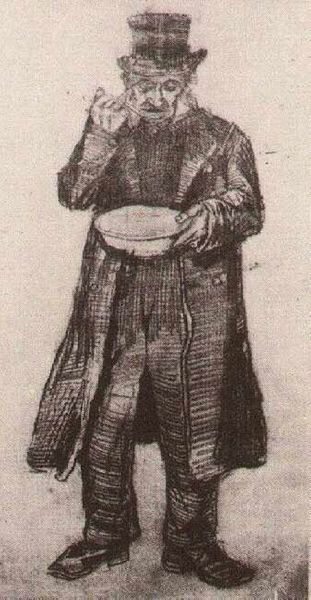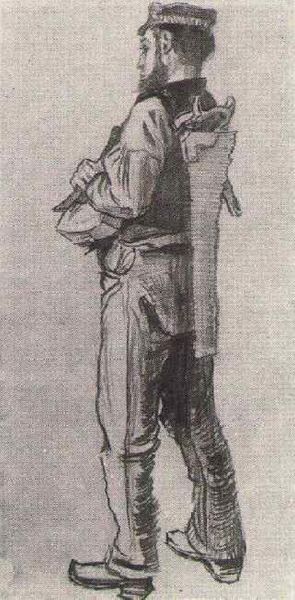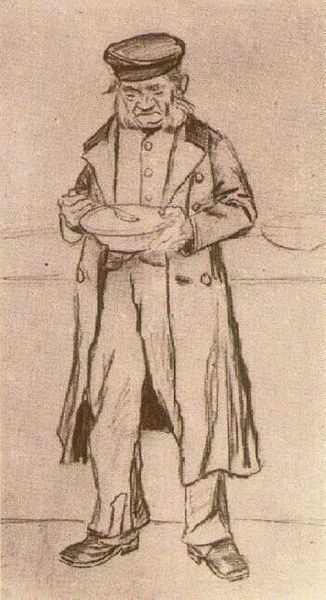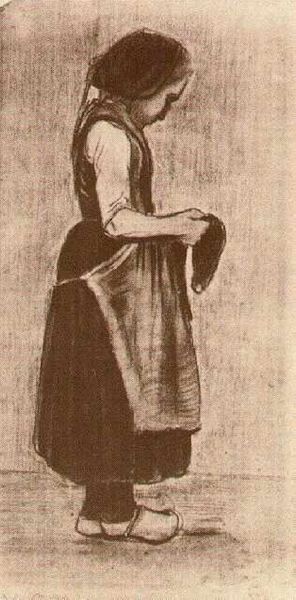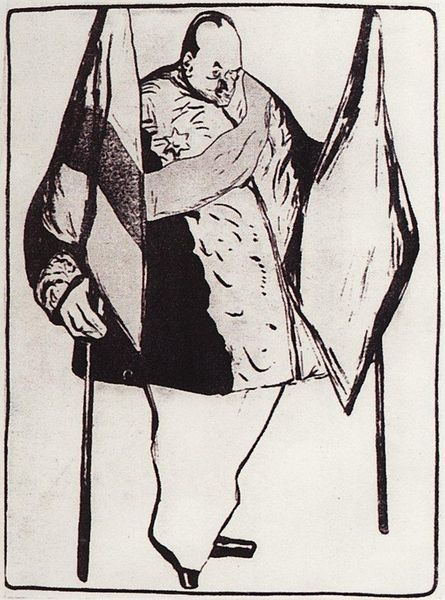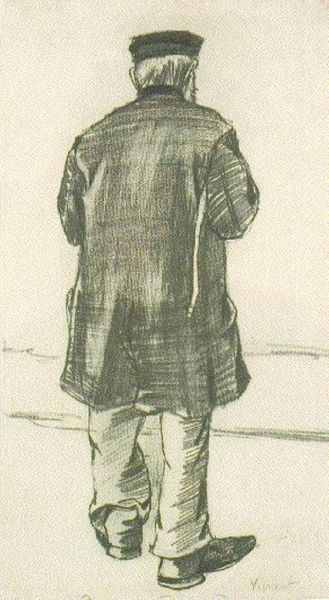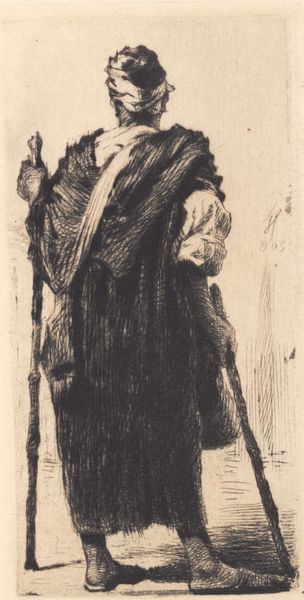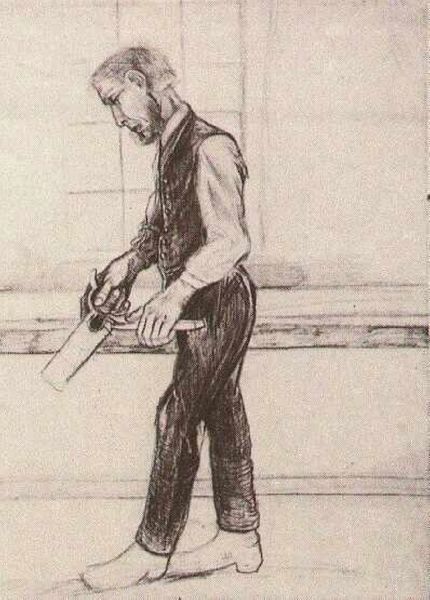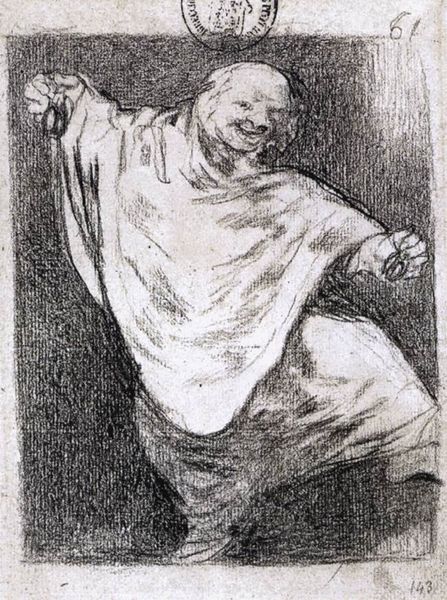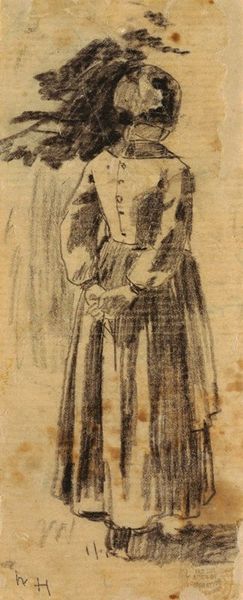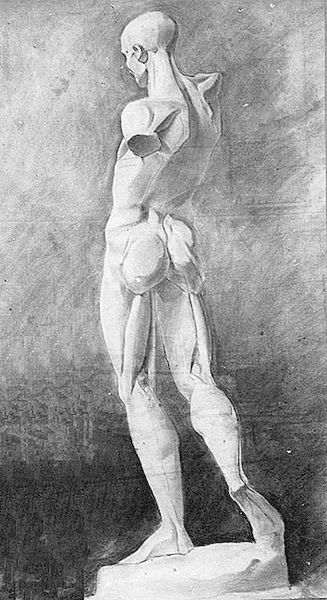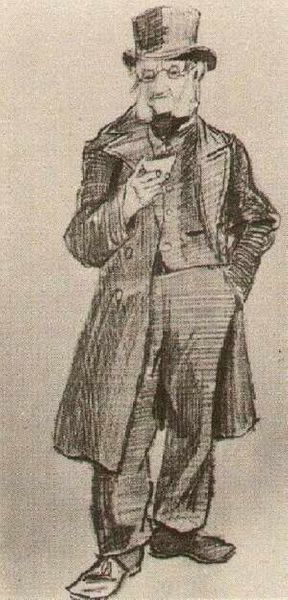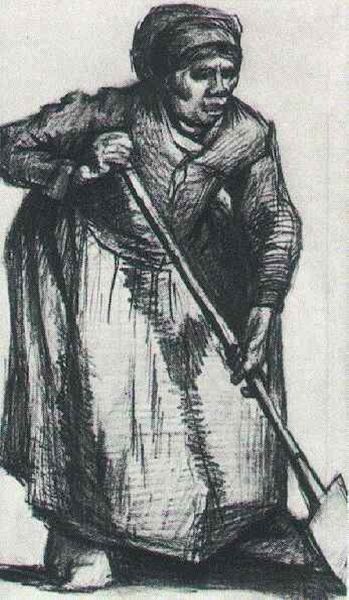
drawing, paper, pencil
#
portrait
#
drawing
#
narrative-art
#
pencil sketch
#
landscape
#
charcoal drawing
#
figuration
#
paper
#
pencil drawing
#
pencil
#
post-impressionism
Copyright: Public domain
This is Vincent van Gogh's lithograph, "The Sower," likely made in the 1880s. Lithography is a printmaking process that involves drawing on a flat stone or metal plate with a greasy substance, then applying ink which adheres only to the drawn areas. Van Gogh’s decision to create this work as a print is significant. Printmaking, unlike painting, allows for the easy distribution of images, and therefore ideas. Here, the final image is a network of lines, created by Van Gogh’s hand guiding the lithographic crayon. The cross-hatching defines the figure’s form, and the furrows in the field. In this way, the medium reflects the subject: like the sower, the artist lays down a matrix from which something new can grow. It's important to remember that the artist and the sower were both laborers, working to produce something from almost nothing. Van Gogh elevates this labor for us to appreciate it. He reminds us that art is also work, and that the artist is a worker.
Comments
No comments
Be the first to comment and join the conversation on the ultimate creative platform.
